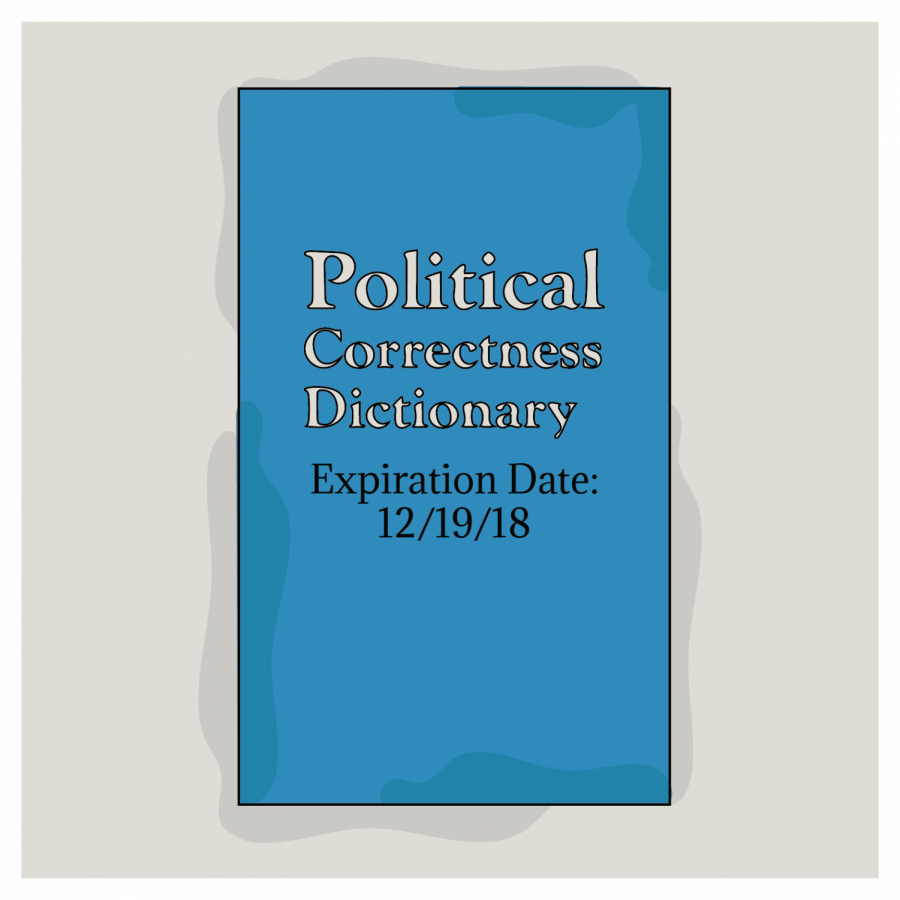Don’t let political correctness distract you
Sep 21, 2018
Nobody likes to be told how to feel. Feelings are, inherently, a very personal thing; to be attacked for how you feel is often deeply disturbing.
Today, though, it seems the individual is less entitled to his or her feelings, especially if those thoughts contradict what has been deemed acceptable by politically correct culture. Frequently, focusing on how we state an issue rather than how we act upon it distracts from the real problems our society faces.
Before I came to the University, I considered myself a very liberal person. However, as I take more classes and talk to different types of people, I’ve begun to see what the truly radical end of the liberal spectrum looks like.
And it has left me with a bitter taste in my mouth.
I’m currently enrolled in an online class which entails reading and viewing media relevant to the material, such as videos or podcasts, and I must respond to them in a public forum. If I use “incorrect” language in the forum, I will get points deducted from my response. To clarify, the incorrect language has nothing to do with profanity or hate speech; it simply refers to choice of phrase.
Get The Daily Illini in your inbox!
This “correct” language is what some have deemed politically correct. Who and with what authority, I haven’t the faintest idea. The language isn’t the only thing prescribed to me, though; the class has taught me that there are “proper” emotional responses to certain situations. I’m, apparently, not supposed to feel inspired by the people I hear about or frightened by gruesome stories.
I don’t know what to feel anymore. I want to be a kind, open-minded and empathetic person. However, it becomes difficult to be open-minded when someone tells you which way to think is correctly open-minded; which way is correct for you to feel and how you should express those feelings.
Political correctness, in theory, is good. It is common sense to avoid saying things that are unkind and offensive. Today, though, it seems people take offense at statements simply intended for communication rather than inciting controversy. This culture of censorship threatens freedom of speech.
Saying mean things to people is bad, but regulating every arbitrary label we have for each identity and ideology is cumbersome and extreme. Political correctness does not equate to ethics or kindness; in fact, I would argue that it distracts from achieving the goals PC activists care so deeply about.
Words have power. But how much? If I say “disabled person,” for example, as opposed to “person with a disability,” does that mean I don’t see that person as a person? Does it mean I don’t believe they have a right to accessibility and inclusivity? Absolutely not.
We’re nitpicking here, and we’re wasting time. We should be focusing on the issues themselves, not what to call them. We shouldn’t be telling people, “Think this way or you’re a bigot”; we should show them the power of kindness and empathy through actions.
I respect the intentions of those who actively promote political correctness, for they are indeed pure. I would beg to ask them, however, how many people’s minds they’ve changed by telling them they’re “wrong” or “bad.” Even if they don’t use those specific words, they are woven into the fabric of the culture they’ve created.
The rest of us mere mortals are afraid to say anything.
Maybe this problem can never be resolved; what’s “offensive” is, after all, highly subjective. But we can all use a little more tolerance in the way we choose to express ourselves.
Take a minute to think about what free speech really means. Maybe we can embrace it instead of imposing our linguistic ideologies on others who simply wish to express themselves in the method of their choosing.
As Voltaire once said, “I disapprove of what you say, but I will defend to the death your right to say it.”
Ellen is a sophomore in LAS.






